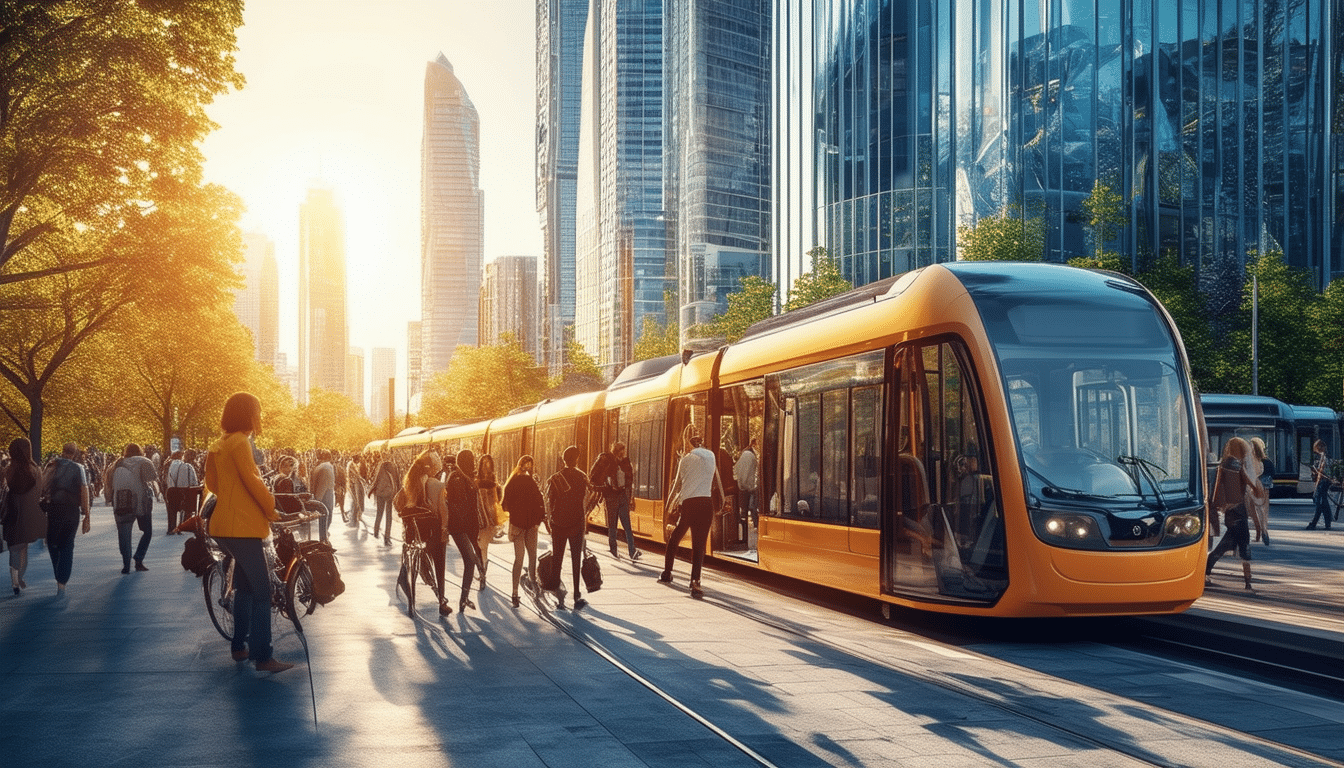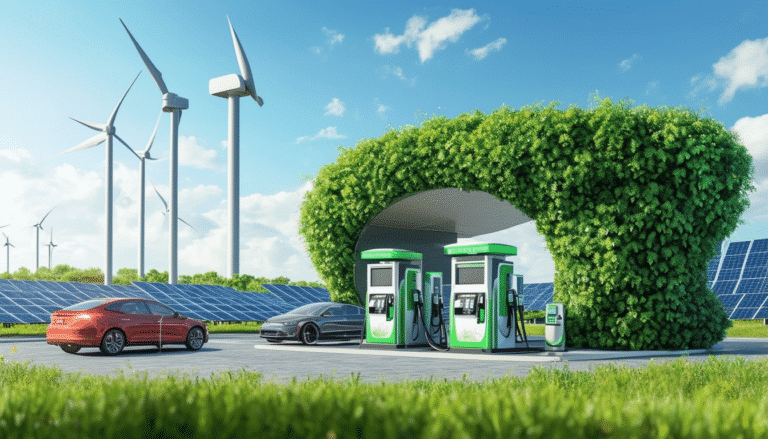Uso of public transport to reduce fuel expenses

The use of public transport is presented as one of the most effective solutions to reduce fuel expenses and lower pollutant emissions. In an era where the energy crisis and climate change are urgent, opting for collective transportation methods like buses and trains not only saves money but also contributes to a healthier and more sustainable environment. With the implementation of appropriate strategies, such as reducing speed limits and telecommuting, this savings can be maximized and responsible mobility can be encouraged. Thus, every transportation decision we make has a significant impact on our economy and the planet.
The use of public transport appears as an effective strategy to reduce fuel expenses and minimize the carbon footprint associated with our daily commutes. Changing mobility habits not only contributes to a more sustainable environment but also implies significant economic benefits for users. This article explores how public transport use can be a viable solution to tackle the challenge of high fuel consumption.
Economic benefits of public transport
One of the most convincing arguments in favor of public transport is its ability to generate significant savings in travel expenses. Monthly subscription costs are often much lower compared to fuel prices. For example, by using services like buses or trains, users can avoid maintenance costs of a personal vehicle as well as parking fees.
Moreover, it is noteworthy that, in terms of energy consumption, public transport tends to be more efficient. A bus, for instance, can transport dozens of passengers at the same time, which implies lower fuel consumption per person. This translates into reduced emissions of pollutants and a more rational use of available energy resources.
Reduction of pollutant emissions
The transport sector is responsible for nearly 30% of total greenhouse gas emissions. Therefore, opting for public transport becomes a crucial decision to mitigate the environmental impact of our daily activities. Every bus, train, or subway trip not only reduces the number of vehicles on the streets but also decreases air pollution in cities.
Therefore, we invite citizens to consider alternatives such as carpooling or sharing rides to maximize the use of a single vehicle. Similarly, promoting public transport use is an essential step towards sustainable mobility, alleviating traffic congestion and fostering cleaner, healthier cities.
Measures to encourage public transport use
To incentivize more people to use public transport, it is vital to implement effective policies that facilitate access and improve the user experience. Initiatives such as implementing car-free Sundays in key cities can significantly contribute to a cultural shift towards using collective transportation methods.
Additionally, institutions can consider offering discounts on weekly or monthly passes, as well as improving the frequency and coverage of available routes. Creating adequate infrastructure, which includes comfortable and safe stops, is essential for attracting more users to these transport systems.
Impact on the local economy
The increased use of public transport also has a positive effect on the local economy. As more people choose this means, job opportunities are generated in the transport industry. In turn, the reduction in the number of cars on the road may lead to fewer accidents and result in a more efficient mobility system.
The path of an efficient public transport guarantees equitable access to mobility, allowing communities with limited resources to travel easily without solely relying on personal vehicles. This, in turn, supports the development of urban areas, fostering more balanced and equitable growth.
Success stories in public transport use
Some cities have already begun experimenting with alternatives that have shown positive impacts on public transport use. Strategies such as shared mobility present an innovative approach, offering practical solutions to ease traffic congestion in large urban areas. Government initiatives promoting fleets of electric buses are also revolutionizing the public transport landscape.
For example, in the Spanish context, two cities have stood out for their commitment to cleaner, more efficient transport. These efforts are not only aimed at reducing fuel expenditures but also at creating a culture of mobility that is more conscious and committed to the environment.
The push towards public transport is reflected in the transformations being carried out under the framework of sustainable development. The importance of adopting measures that promote responsible mobility becomes evident in light of growing concerns about climate change and the necessity to conserve energy resources.
For additional information on innovations in the transport sector, you can consult articles about the automotive revolution or the conditions for renewing the driving license.
The use of public transport is presented as a viable and effective solution to reduce fuel expenses and, therefore, to mitigate the environmental impact caused by the excessive use of personal vehicles. With more than one-third of the energy consumption in Andalusia allocated to transport, it is crucial to seek alternatives that not only promote sustainability but also offer economic benefits to users.
By opting for collective means such as buses or trains, it is possible to achieve approximately half the energy consumption compared to private transport. This implies a significant reduction in pollutant gas emissions, which are responsible for nearly 30% of pollution in the region. Furthermore, public transport allows a greater number of people to travel simultaneously, thus optimizing resource use and reducing the need for extensive road infrastructure.
Implementing a plan of concrete actions such as reducing speed limits on highways or promoting the option to work from home up to three days a week contributes to encouraging the use of collective transport. Lowering speed translates into reduced fuel consumption and, accordingly, a direct benefit for the environment.
Finally, promoting options such as carpooling and the use of bicycles not only complements the public transport offering but also creates a friendlier and more sustainable environment for everyone. Adopting more responsible and sustainable mobility habits not only benefits users but also lays the groundwork for a future where fuel expenses are minimized and social well-being is maximized.




